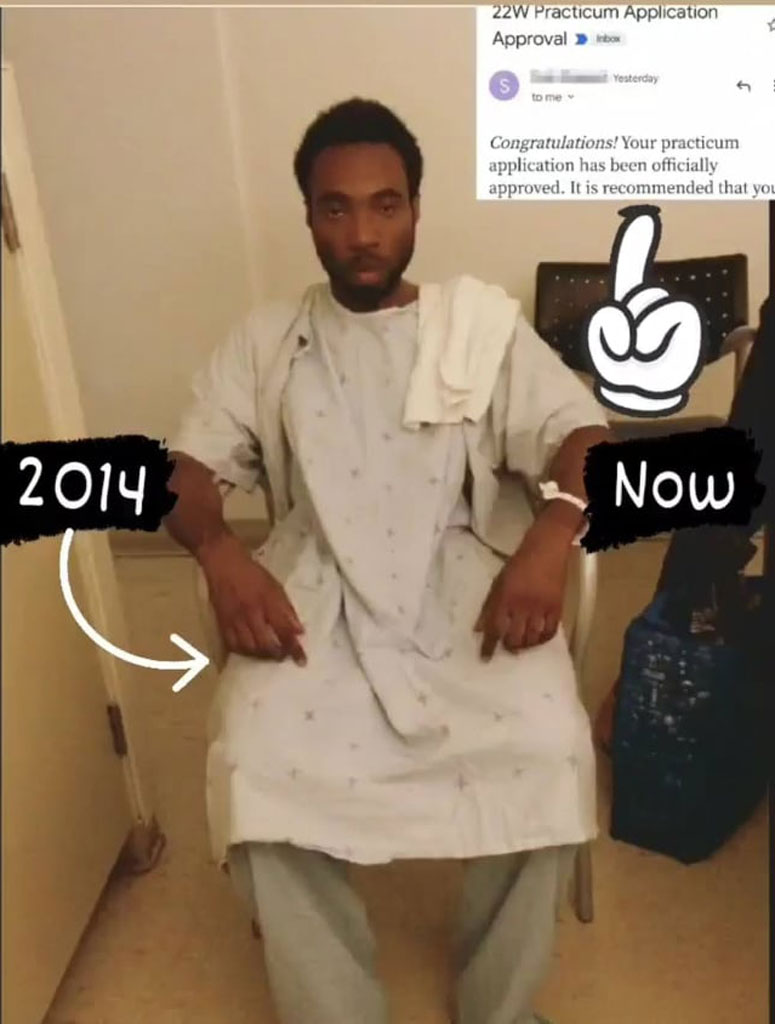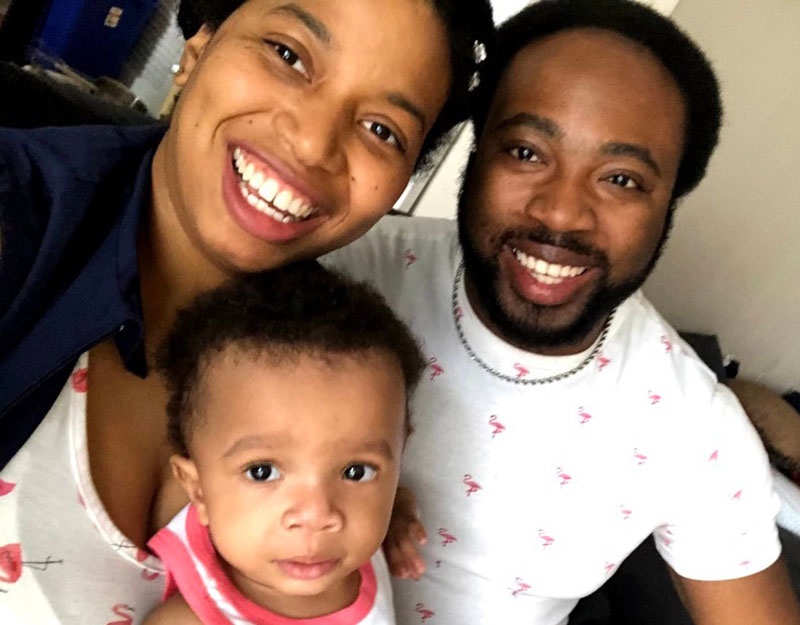In 2014, Ola Kuforiji was admitted to a psychiatry unit, strapped down to a bed, and injected with a needle. He was passed out. Locked up. Lost.

“I didn’t even know at times if I would make it – if I would be alive, much less be able to hold a full-time job again,” recalled the 31-year-old husband and father, who was ultimately diagnosed with bipolar disorder.
Fast-forward seven years, and Kuforiji is now not only surviving, but thriving – studying towards his Master of Arts in Counselling Psychology at Yorkville University, while juggling multiple jobs, a young family, and looking forward to his upcoming practicum placement doing therapy work.
He recently shared some of the details of his inspirational journey in social media postings on both his LinkedIn and Instagram profiles.
“Here I am in 2014. An inpatient in a Psychiatry unit. It was just like the movies….Why share this on a platform full of potential employers? Because I am proud of myself!” Kuforiji wrote.

“I believe these experiences, combined with my formal training at Yorkville University have prepared me in a very special way for my placement at Integra Health Centre. I am going to be a therapist! Being able to pursue our dreams against seemingly unsurmountable odds – could there be any greater gift?”
Born and raised in Toronto, Kuforiji said he grew up with a natural inclination toward problem solving and peer mediating. While his parents steered him toward science studies, it was his high school English teacher, Naomi Wittlin, whom he credits with inspiring in him a desire “to analyze, to think, to interpret, and to understand” people.
“Coming from a science-based, biology-focused background, I wanted to pair that interest in mental health with some empiricism and the ability to research,” he said.
“To me, psychology sounded like it married these two arenas together – and from my first Intro to Psychology course, I absolutely loved it.”
After graduating from the University of Toronto – Scarborough in 2012 with a Bachelor of Science in Mental Health Studies, Kuforiji went on to work as a research assistant/analyst for a number of different hospitals and health organizations.
Then, just after his 24th birthday, he returned home from a celebratory trip with friends behaving ‘bizarrely’ – something his brother was the first to flag. Concerned for his health, his family took him to the hospital to be assessed, and he ended up being admitted.
It was an experience he recalled as an “absolutely” scary one.
“To be frank, there were some great people there, and some not great people there – not everyone seemed passionate or for the people, if you will,” he said of his experience, crediting his mother, father, sister and brother for being there at the hospital and advocating for him every day of his admission.
“There were definitely some caring people there, but it’s not a perfect system at all…We need more people who really care about people and want to help them. I thought that was a given with the field, but not everyone has that.”
While his hospitalization wasn’t an easy one, Kuforiji nonetheless called his ultimate diagnosis with bipolar disorder – a medical condition characterized by extreme mood swings that affect how people think, behave and function – as an “absolutely uplifting” one.

“I was referred to the head of the department at Humber River Hospital…he asked me some questions about me and my life, he scribbled on a piece of paper, he gave me the diagnosis and he recommended two medications, which I began taking – and they were pretty much immediately effective,” Kuforiji recalled.
“It was incredible to not only begin to feel like myself again, but to also have an understanding of what was going on and a framework on how to work on things. It allowed me to have a wealth of knowledge to tap into and it helped me interpret my own experiences.”
It was also that experience that inspired Kuforiji to return to school to become a therapist himself – a vocation he intends to infuse with much more empathy than some of the mental health workers he encountered during his own hospitalization.
“I think the experiences I’ve had will help me understand things that people sometimes aren’t able to communicate verbally in the moment,” he explained.
“I remember wanting to say things when I was in the hospital, but I just wasn’t able to express myself well – and having someone help to put words to what you’re feeling and experiencing is an incredibly helpful process.”

Looking back on all he’s gone through over the last seven years, Kuforiji said he’s immensely proud – if not completely taken by surprise – by all he’s been able to accomplish.
It’s an example he hopes his “amazing and wilful” 21-month-old son, Nile, will follow as he strives to overcome any barriers he may encounter through life.
“If you were to tell me back then that this is where I’d be now, it would have been very hard for me to believe. But being where I am now – finishing up my education and being able to really work in the field – is an amazing feeling,” he said, praising his wife, Melissa, for her steadfast support.
“For me, I think faith was the key ingredient in getting me to where I am today – faith in myself, faith in the system, even though it’s not perfect, and faith in those I love and care about.”






